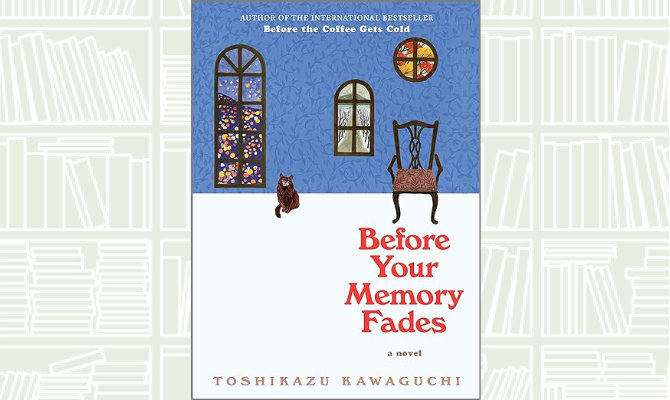Written by Toshikazu Kawaguchi and published in 2023, “Before Your Memory Fades” explores the fragility of memory and the enduring power of human connection.
The third book in the international bestselling “Before the Coffee Gets Cold” series — translated to English by Geoffrey Trousselot — is set in a small cafe in Tokyo and it follows the intertwined lives of four individuals who all want to travel back in time for various reasons.
The first character is the daughter who wants to meet her parents before they died.
The second character is a comedian who wants to go back in time to speak with his wife who passed away.
The third character is a woman who is in denial about her sister’s death.
And finally, the fourth character in the story is a young man who is a student and works at the cafe at the same time.
In the story, the café’s owner can transport his guests back in time to pivotal moments in their lives.
As characters are given the chance to revisit their pasts, the novel explores the delicate balance between the desire to change the course of events and the acceptance of the inevitable.
























